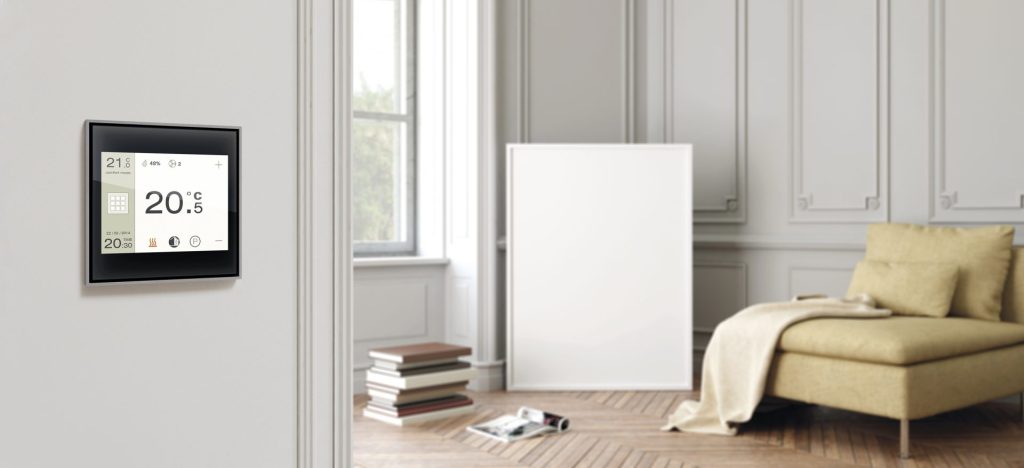As the world becomes increasingly conscious of the need for sustainability and environmental preservation, the role of smart home technology in enhancing energy efficiency has become more crucial than ever. Smart home solutions have the potential to transform the way we manage and consume energy within our living spaces, leading to significant cost savings, reduced carbon footprints, and a more sustainable future.
The Rise of Smart Home Technology and Energy Efficiency
The rapid advancements in smart home technology have revolutionized the way we interact with and optimize the energy usage within our homes. By integrating a wide range of smart devices and systems, homeowners can now take a more proactive and data-driven approach to managing their energy consumption.
The Shift Towards Energy-Conscious Living
Homeowners are becoming more aware of their energy consumption and the impact it has on the environment. This growing awareness, coupled with the rising costs of energy, has sparked a widespread demand for solutions that can help reduce energy usage and lower utility bills.
Smart home technology has emerged as a key enabler of this shift, providing homeowners with the tools and insights they need to make informed decisions about their energy usage and take control of their home’s energy efficiency.
The Role of Smart Home Technology in Energy Efficiency
Smart home technology offers a comprehensive suite of features and capabilities that can significantly enhance the energy efficiency of a home. From intelligent climate control systems to automated lighting and appliances, these advanced solutions can help homeowners optimize their energy consumption and reduce their environmental impact.

Key Smart Home Features for Energy Efficiency
Smart home technology offers a range of features and functionalities that can contribute to improved energy efficiency. Let us explore some of the most impactful smart home solutions for energy-conscious living:
Smart Thermostats
Smart thermostats are one of the most widely adopted and effective smart home devices for enhancing energy efficiency. These advanced thermostats can learn and adapt to a home’s occupancy patterns and temperature preferences, automatically adjusting the heating and cooling systems to optimize energy usage.
Smart thermostats can also be remotely controlled and programmed, allowing homeowners to adjust on the go or set schedules that align with their daily routines. By ensuring that the HVAC system is only active, when necessary, smart thermostats can lead to significant reductions in energy consumption and utility costs.
Automated Lighting Systems
Lighting accounts for a significant portion of a home’s energy consumption, making it an essential target for optimization through smart home technology. Smart lighting systems, which can include connected light bulbs, sensors, and control hubs, offer a range of energy-saving features.
These systems can automatically turn off lights in unoccupied rooms, dim lights based on available natural light and even adjust colour temperatures to match the time of day and occupant preferences. By automating lighting and ensuring that energy is only used when needed, smart lighting solutions can contribute to substantial energy savings.
Intelligent Appliance Integration
Smart home technology also extends to household appliances, enabling homeowners to optimize their energy usage and reduce their carbon footprint. Smart appliances, such as refrigerators, washing machines, and dishwashers, can be integrated into the home’s smart ecosystem, allowing for remote monitoring, scheduling, and energy-efficient operation. For example, a smart refrigerator can alert the homeowner when the door has been left open, reducing energy waste.
Similarly, a smart washing machine can be programmed to run during off-peak hours, taking advantage of lower energy rates and reducing the strain on the electrical grid.
Energy Monitoring and Analytics
At the core of smart home energy efficiency is the ability to monitor and analyse energy consumption data. Smart home platforms often incorporate energy monitoring features, providing homeowners with detailed insights into their energy usage patterns and highlighting areas where they can optimize their consumption.
By analysing this data, homeowners can make more informed decisions about their energy usage, identify opportunities for improvement, and track the impact of their energy-saving efforts over time. This data-driven approach empowers homeowners to take a proactive role in managing their home’s energy efficiency.
Renewable Energy Integration
Smart home technology also enables the seamless integration of renewable energy sources, such as solar panels and battery storage systems. By connecting these renewable energy systems to the home’s smart ecosystem, homeowners can monitor their energy production, optimize their consumption, and even sell excess energy back to the grid.
This integrated approach to renewable energy can further enhance the overall energy efficiency of the home, reducing reliance on traditional grid-supplied electricity and minimizing the environmental impact of the household’s energy usage.
The Benefits of Smart Home Technology for Energy Efficiency
The implementation of smart home technology for energy efficiency can provide homeowners with a range of tangible benefits, both in terms of financial savings and environmental impact.
Cost Savings on Utility Bills
One of the most immediate and measurable benefits of smart home energy efficiency is the reduction in utility costs. By optimizing energy usage through features like smart thermostats, automated lighting, and intelligent appliances, homeowners can see significant reductions in their monthly electricity, gas, and water bills.
According to studies, homeowners who adopt smart home technology can save up to 30% on their energy bills, with some households reporting even greater savings. These cost savings can have a substantial impact on a household’s overall financial well-being, especially in the long run.
Reduced Carbon Footprint
Beyond the financial benefits, the integration of smart home technology for energy efficiency also contributes to a significant reduction in a household’s carbon footprint. By minimizing energy consumption and leveraging renewable energy sources, smart homes can drastically lower their greenhouse gas emissions and play a vital role in environmental conservation.
This positive environmental impact not only benefits the homeowner but also contributes to the broader societal goal of sustainability and climate change mitigation. As more homeowners embrace smart home energy efficiency, the cumulative effect can lead to substantial reductions in the overall carbon footprint of the residential sector.
Increased Home Value
The integration of smart home technology for energy efficiency can also enhance the value of a home, making it more attractive to potential buyers in the real estate market. Homebuyers are increasingly prioritizing energy-efficient and sustainable features when evaluating properties, recognizing the long-term financial and environmental benefits.
By investing in smart home energy efficiency, homeowners can not only enjoy the immediate cost savings and environmental benefits but also potentially increase the resale value of their property, making it a worthwhile investment in the long run.

Overcoming Challenges and Embracing the Future of Smart Home Energy Efficiency
While the benefits of smart home technology for energy efficiency are well-documented, there are still some challenges that homeowners and industry professionals must address to ensure widespread adoption and optimal performance.
Balancing Technology and User Experience
One of the key challenges is ensuring that the integration of smart home technology into energy-efficient systems is seamless and intuitive for homeowners. Complicated or unintuitive interfaces can hinder user engagement and prevent homeowners from fully leveraging the energy-saving capabilities of these technologies.
Architects, designers, and technology providers must work collaboratively to create smart home solutions that strike a balance between advanced functionality and user-friendly experiences, empowering homeowners to take an active role in managing their home’s energy efficiency.

Addressing Privacy and Security Concerns
As smart home technology becomes more pervasive, homeowners may have valid concerns regarding privacy and security. The collection and storage of personal data, as well as the potential for cyber threats, must be addressed through robust security measures and transparent data management policies.
Ensuring the privacy and security of smart home systems is essential for building consumer trust and accelerating the widespread adoption of energy-efficient smart home technologies.
Embracing the Future of Smart Home Energy Efficiency
Despite these challenges, the future of smart home technology for energy efficiency remains bright. As the technology continues to evolve, homeowners can expect to see even more advanced and seamless solutions that further optimize energy usage, integrate renewable energy sources, and provide deeper insights into household consumption patterns. By embracing the power of smart home technology, homeowners can not only enjoy the financial and environmental benefits of energy efficiency but also contribute to the larger societal goal of sustainable living. As the adoption of these
technologies grows, the impact on energy consumption and the environment can be transformative, paving the way for an eco-friendlier and energy-efficient future.

